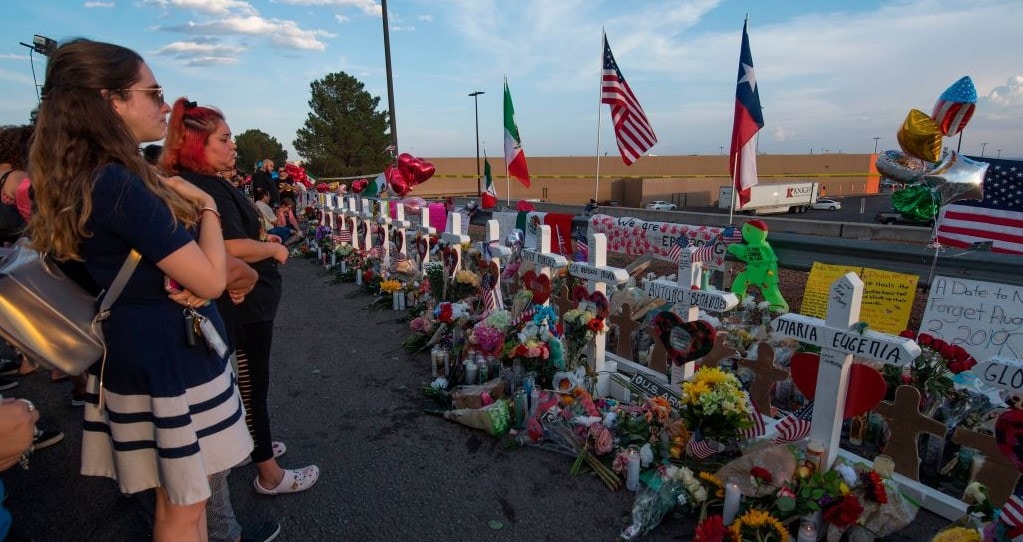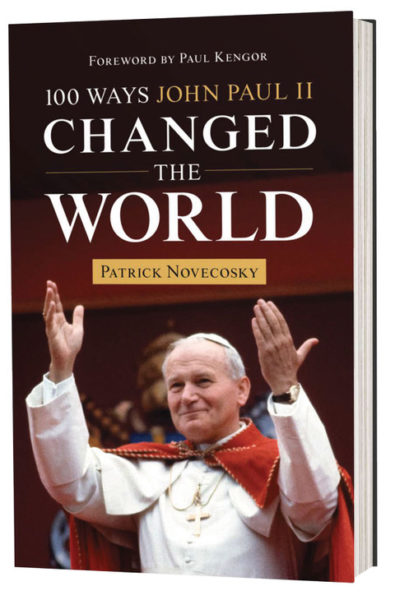by Patrick Novecosky
(August 7, 2019) — Nobody blamed the truck when 29-year-old Uzbek national Sayfullo Saipov rented a pickup from Home Depot 18 months ago and deliberately mowed down a dozen pedestrians and bicyclists in New York City, killing eight. There was no lobbying for background checks or more laws around vehicle rentals. Yet every time there’s a mass shooting, political leaders call for more gun laws. More laws won’t fix the problem.
I understand the necessity for political posturing. The President tweets and governors issue statements condemning the heinous crime. They assure the nation of their “thoughts and prayers” and the need to stop the violence. Lawmakers and those vying for office insist that we need new legislation. Some call for more drastic measures. Democratic presidential contender Pete Buttigieg told Fox News Sunday that “we cannot allow the Second Amendment to be a death sentence for thousands of Americans a year.”

We should expect as much from him.
Surely, I thought, faith leaders will cut to the heart of the problem. During Sunday morning Mass, our deacon read a statement about the weekend shootings in El Paso and Dayton from Cardinal Daniel DiNardo, president of the U.S. bishops’ conference, and Bishop Frank Dewane, chairman of their Committee on Domestic Justice and Human Development.
“Once again, we call for effective legislation that addresses why these unimaginable and repeated occurrences of murderous gun violence continue to take place in our communities,” the cardinal wrote. “As people of faith, we continue to pray for all the victims, and for healing in all these stricken communities. But action is also needed to end these abhorrent acts.”
We should expect more from our bishops.
Sure, we must pray for the victims and their families. That’s essential. But we also need to pray for the disturbed individuals who may contemplate violence in the future. As Christians, we know that our prayers are efficacious. We must beg God’s grace for these men. They’re out there, and their numbers are growing.
These young, lonely, disaffected young men often had abusive, distant or absent fathers. The breakdown of the family and the isolation exacerbated by technology is affecting the mental health of thousands (if not millions) of Americans.
❧
Some bishops get it. Philadelphia Archbishop Charles Chaput, who buried victims of the Columbine High School massacre 20 years ago, wrote this week that unless hearts are changed, mass murder like we witnessed this week will continue. He puts the blame squarely on the culture and each of us:
…only a fool can believe that “gun control” will solve the problem of mass violence. The people using the guns in these loathsome incidents are moral agents with twisted hearts. And the twisting is done by the culture of sexual anarchy, personal excess, political hatreds, intellectual dishonesty, and perverted freedoms that we’ve systematically created over the past half-century.
The vast majority of these shooters, bombers, and truck-driving killers come from broken or abusive families. The sobering thread running through the lives of all these perpetrators is fatherlessness. The late rapper Tupac Shakur once famously said, “I know for a fact that, had I had a father, I’d have some discipline. I’d have more confidence. Your mother can’t calm you down the way a man can. You need a man to teach you how to be a man.”
Things haven’t improved since Tupac was murdered in 1996. Today, despite a roaring economy, Americans are unhappy. Fortune reports that the 2019 World Happiness Report pegs the U.S. at No. 19—its worst ranking ever.
Like Chaput, one of the report’s co-authors points to Americans’ appetite for addiction – including “gambling, social media use, video gaming, shopping, consuming unhealthy foods, exercising, and engaging in extreme sports or risky sexual behaviors.”
❧
These addictions are coping mechanisms for isolation. Millennials are among the loneliest and most isolated generation in our nation’s history, according to a new YouGov survey. Nearly a third say they always feel lonely.
“Millennials are also more likely than older generations to report that they have no acquaintances (25% of Millennials say this is the case), no friends (22%), no close friends (27%), and no best friends (30%),” according to the report.
These are the issues we expect our faith leaders to address. We expect politicians to pass legislation that keeps weapons out of the hands of mentally unstable individuals, even though that won’t solve the problem. Troubled, angry men will then use a knife, a bomb, or a truck to lash out at the innocent. Politicians and faith leaders need to understand once and for all: it’s a heart problem, not a gun problem.
Patrick Novecosky is a Florida-based media relations professional, founder of this blog and NovaMedia. This article originally appeared on August 7, 2019, at Crisis Magazine.


